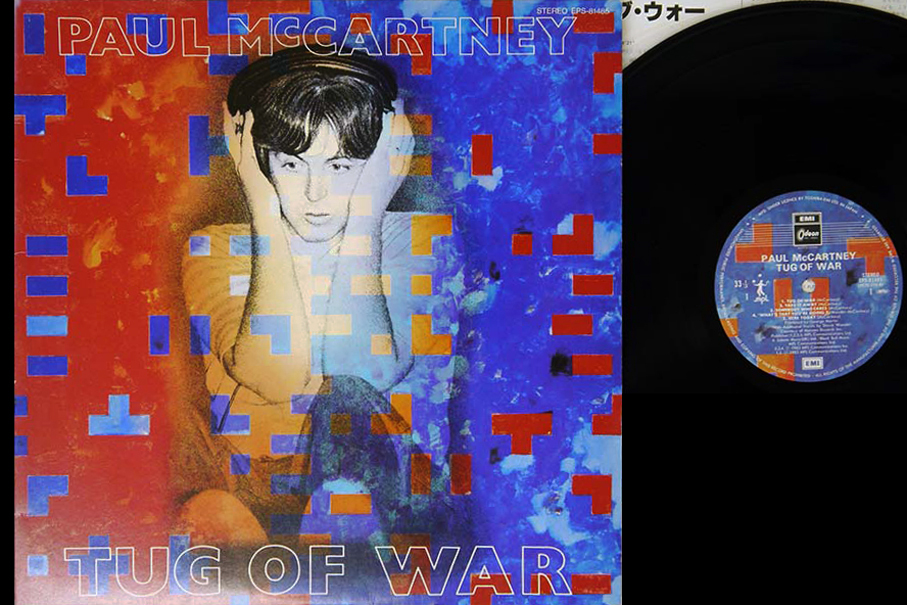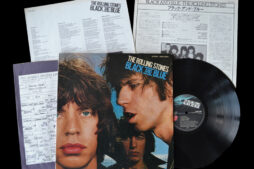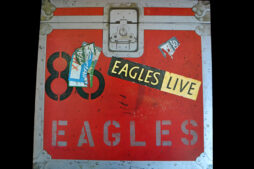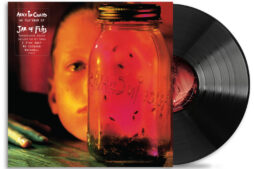Paul McCartney – Tug Of War (Vinyl) Original Japanese Pressing
EMI / Odeon Records (1982)
$35.00
Hard To Find 1982 Japanese First Pressing! Includes 6-Page Fold-Out Insert With Lyrics. Features Two Songs With Stevie Wonder, Including The Hit Single “Ebony And Ivory”.
1 in stock
CompareProduct Description
Hard To Find 1982 Japanese First Pressing! Includes 6-Page Fold-Out Insert With Lyrics In English & Japanese. Record Has Picture Labels. Features Two Songs With Stevie Wonder, Including The Hit Single “Ebony And Ivory”.
Tug of War was Paul McCartney’s first album released after the dissolution of Wings in April, 1981 and his 11th album since the break up of The Beatles. It was also McCartney’s first album after the murder of ex-songwriting partner John Lennon. The album was produced by former Beatles producer George Martin and was a number one hit in many countries.
Condition – Vinyl: NEAR MINT! Great Production ~ Sounds Wonderful!
Condition – Cover: VERY GOOD PLUS! Minor foxing on front.
Japanese vinyl pressings are highly sought after by audiophiles and collectors, due to their premium sound quality and beautifully presented packaging. The sonic quality of Japanese records is regarded as the best in the world. No wonder all the original Mobile Fidelity Sound Lab records were pressed in Japan! The covers are printed on better quality heavy stock paper too. Near Mint Condition original Japanese pressings are becoming scarcer ~ and therefore more collectable and valuable every year.
Side 1:
Tug Of War
Take It Away
Somebody Who Cares
What’s That You’re Doing? (With Stevie Wonder)
Here Today
Side 2:
Ballroom Dancing
The Pound Is Sinking
Wanderlust
Get It Featuring (With Carl Perkins)
Be What You See (Link)
Dress Me Up As A Robber
Ebony And Ivory (With Stevie Wonder)






AMG –
McCartney revived his relationship with Beatles producer George Martin and brought in several heavy-hitters as guests, including Stevie Wonder & Carl Perkins 4 ½ Stars Like 1970's McCartney, 1980's McCartney II functioned as a way for Paul McCartney to clear the decks: to experiment and recalibrate in the aftermath of his band falling apart. This means 1982's Tug of War is, in many ways, the very first Paul McCartney solo album, a record recorded not at home but in a studio, a record made without Wings and not co-credited to Linda, who nevertheless is present as a backing vocalist. McCartney recognized this album as something of a major opportunity, so he revived his relationship with Beatles producer George Martin and brought in several heavy-hitters as guests, including his hero Carl Perkins, his Motown counterpart Stevie Wonder, fusion star Stanley Clarke, prog rock refugees Eric Stewart and Andy Mackay, and his old bandmate Ringo Starr, whose presence was overshadowed by "Here Today," an elegy written for the murdered John Lennon. Tucked away at the end of the first side, "Here Today" is bittersweet and small when compared to all the show pieces elbowing each other for attention throughout Tug of War: the grave march of the title track, the vaudevillian "Ballroom Dancing," the stately drama of "Wanderlust," and sincere schmaltz of "Ebony and Ivory," the Wonder duet that helped turn this album into the blockbuster it was intended to be. As good as some of these numbers are -- and they are, bearing an ambition and execution that outstrips latter-day Wings -- much of the charm of Tug of War lies in the excess around the edges, whether it's the rockabilly lark of the Perkins duet "Get It," the later-period Beatles whimsy of '"The Pound Is Sinking," the electro-throwaway "Dress Me Up as a Robber," or the long, electro-funk workout of "What's That You're Doing?," a track that's a fuller collaboration between Paul and Stevie than "Ebony and Ivory." Such crowd-pleasing genre-hopping finds its apotheosis on "Take It Away," a salute to eager performers and the crowds who love them, which means it summarizes not only the appeal of Tug of War in general -- it is, by design, a record that gives the people old Beatle Paul -- but McCartney in general. 4 ½ Stars